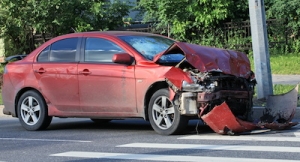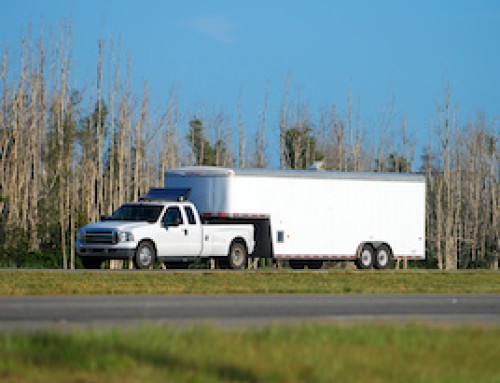 Each and every time you get into your vehicle, there is a chance you may be involved in an auto accident. Regardless of the cause of the accident, you may have a car that is totaled. If a vehicle’s cost of repair plus its salvage value exceeds the vehicle’s actual cash value (ACV), it is typically declared a total loss. Will you know what to do if your car is a total loss?
Each and every time you get into your vehicle, there is a chance you may be involved in an auto accident. Regardless of the cause of the accident, you may have a car that is totaled. If a vehicle’s cost of repair plus its salvage value exceeds the vehicle’s actual cash value (ACV), it is typically declared a total loss. Will you know what to do if your car is a total loss?
How is ACV Calculated?
There are several things you need to know when determining whether your car is a total loss. First of all, you will need to establish the ACV (actual cash value) of the vehicle at the time of the loss. ACV is what your car is worth less any depreciation that has occurred with time. Typically, you can count on depreciation being between 15-25% each year during the first five years.
When you have an auto accident, you need to immediately contact your N.C. insurance company or independent agent to inform them of the accident. A N.C. claims adjuster will then be assigned to assess your vehicle’s condition and run the make, model, and year of your auto through an industry-leading database that will give a precise analysis of your car’s worth. Other factors may include how well you cared for the car and the demand for this particular vehicle.
How is the Salvage Value Calculated?
When the adjuster is considering the value of your car, he/she will need to factor in the resale value of the parts and metal. This factor, known as the “salvage value,” is considered along with the cost of repair. Every insurance company has their own standard of how they assess the salvage value. In many cases, it may be between 75-80%.
Let’s say that your insurance company calculates salvage values using 80%, and your car is valued at $10,000. Thus, the calculated salvage value would be $8000. Please remember though that the salvage value calculation will require you to use the market value and the percentage given to you by your North Carolina insurance company.
What if the Adjuster Says My Car is a Borderline Total?
Sometimes when your car is damaged, the cost of repairs is close to exceeding the value of the car. For example, if your vehicle is worth $10,000 and the damage exceeds $7,000, your vehicle may be considered a total loss, depending on your North Carolina insurance company’s procedures. A borderline total loss would be if the damage to your vehicle were hovering around the $7000 amount, without factoring in possible supplemental repairs. Sometimes when the adjuster is writing up the estimate to repair your car, he/she can only write up the apparent damages, yet there MAY be hidden damages that may not be revealed until the body shop begins the repairs.
You Have Choices
If the adjuster advises your car is a total loss, you have two choices.
- You can take the established ACV of your car less any applicable deductible (made payable to you and any lienholder named on the Declarations Page)
- Keep the salvage and request the title (some value may be deducted for salvage before given back to you)
*Note: The vehicle’s VIN # will be submitted to a federal database for future reference regarding substantial damage
Each and every time you get into your vehicle always maintain safe driving standards. However, bad things can happen so if you are involved in an auto accident and your car is totaled, you WILL know what to do! Safe travels!

 Tom's Blog
Tom's Blog



